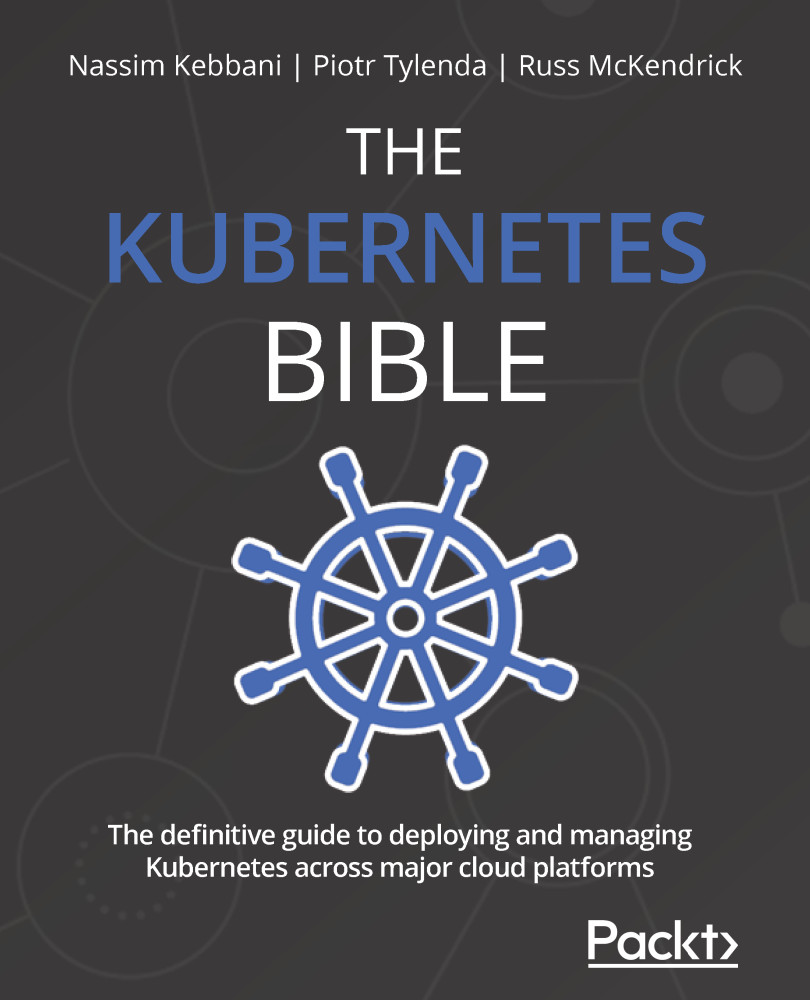-
Book Overview & Buying

-
Table Of Contents

The Kubernetes Bible
By :

The Kubernetes Bible
By:
Overview of this book
 Free Chapter
Free Chapter
 Sign In
Start Free Trial
Sign In
Start Free Trial

 Free Chapter
Free Chapter
As part of the application development process, you need to think about application redistribution and dependency management. You may want this as part of your final product offering – the application needs to be easily downloaded and installed by the customers. But you may also want to redistribute the application or a component internally for other teams working on the same product. In the non-container world, you have a variety of package management systems (or package managers). If you work on Ubuntu, you can use the Advanced Package Tool (APT) to install software. On Windows, you can use Chocolatey (https://chocolatey.org/), and if you are interested in libraries or applications specific to JavaScript, you can use npm.
Kubernetes is no exception, and it has its own dedicated package managers implemented by the community, the most popular of which is currently Helm (https://helm.sh/). In general, Helm is currently regarded as the industry...
